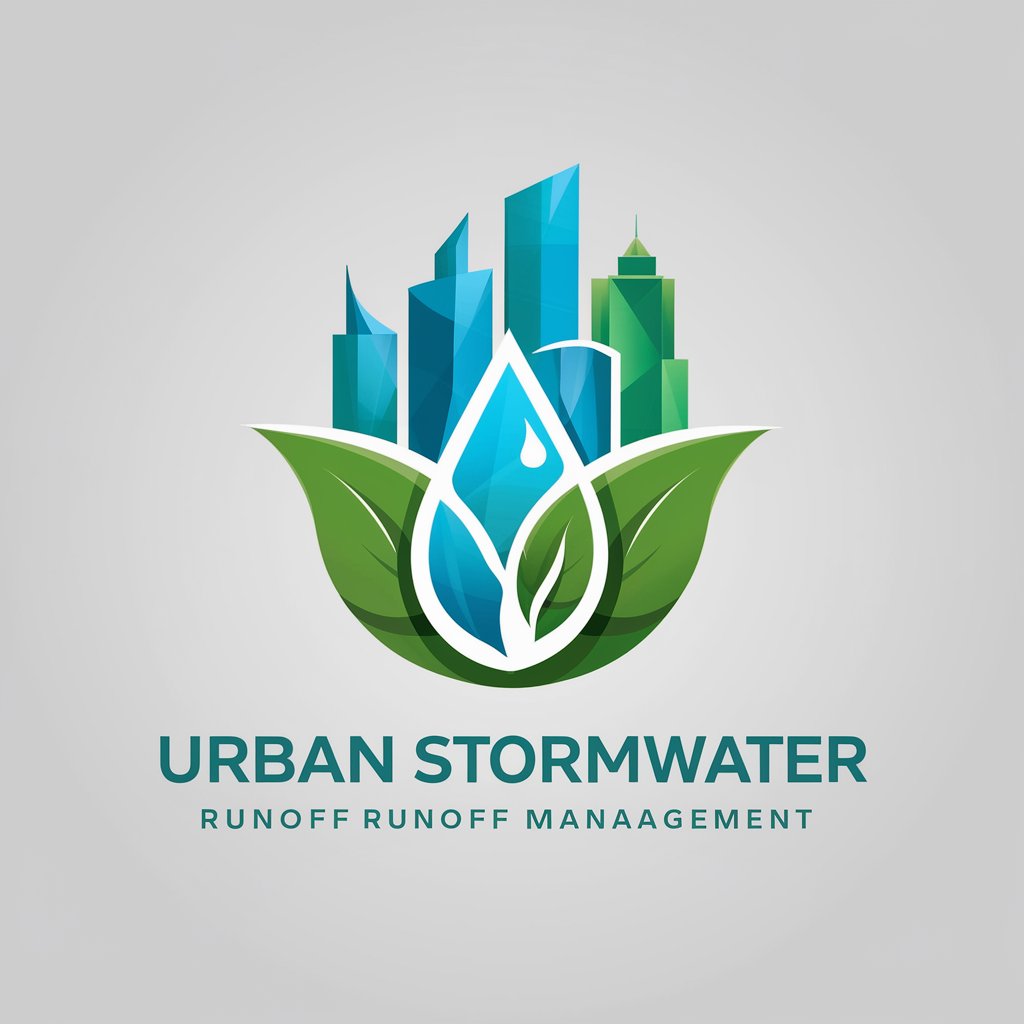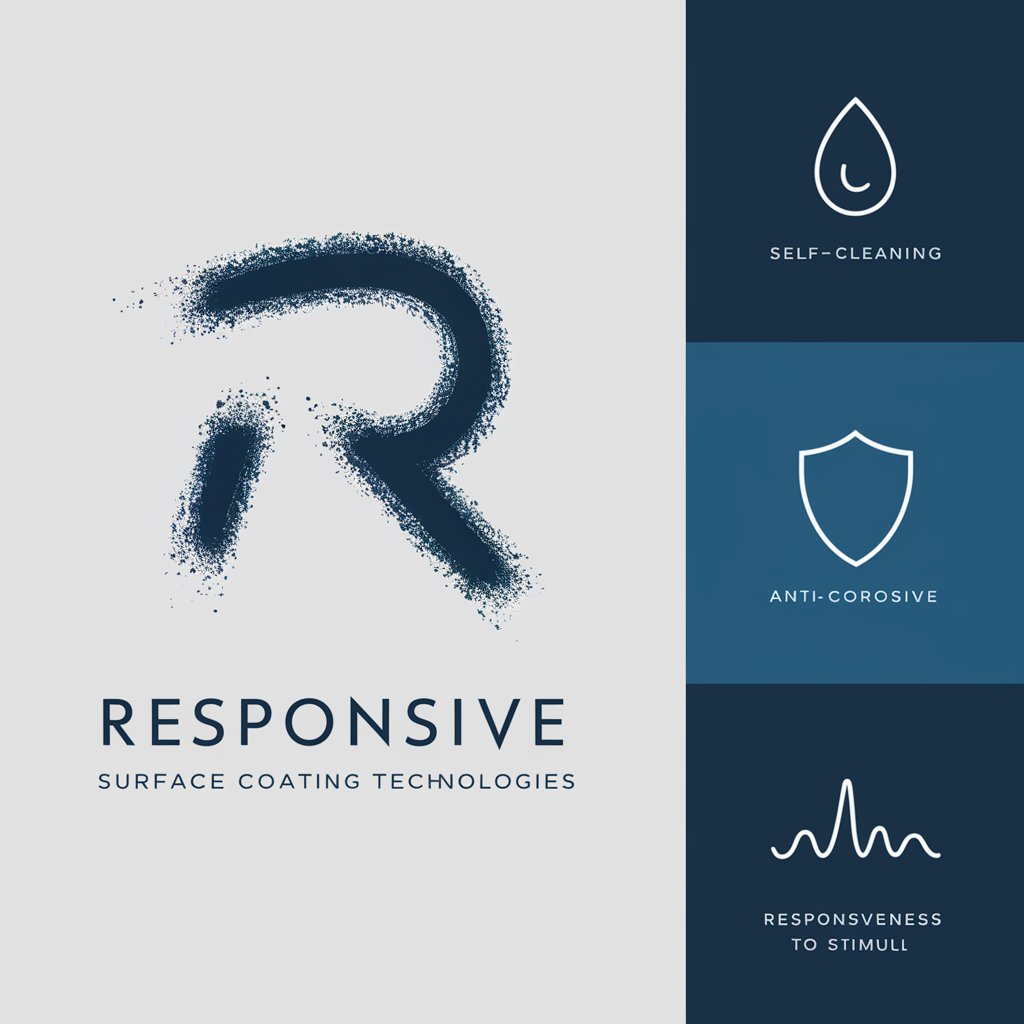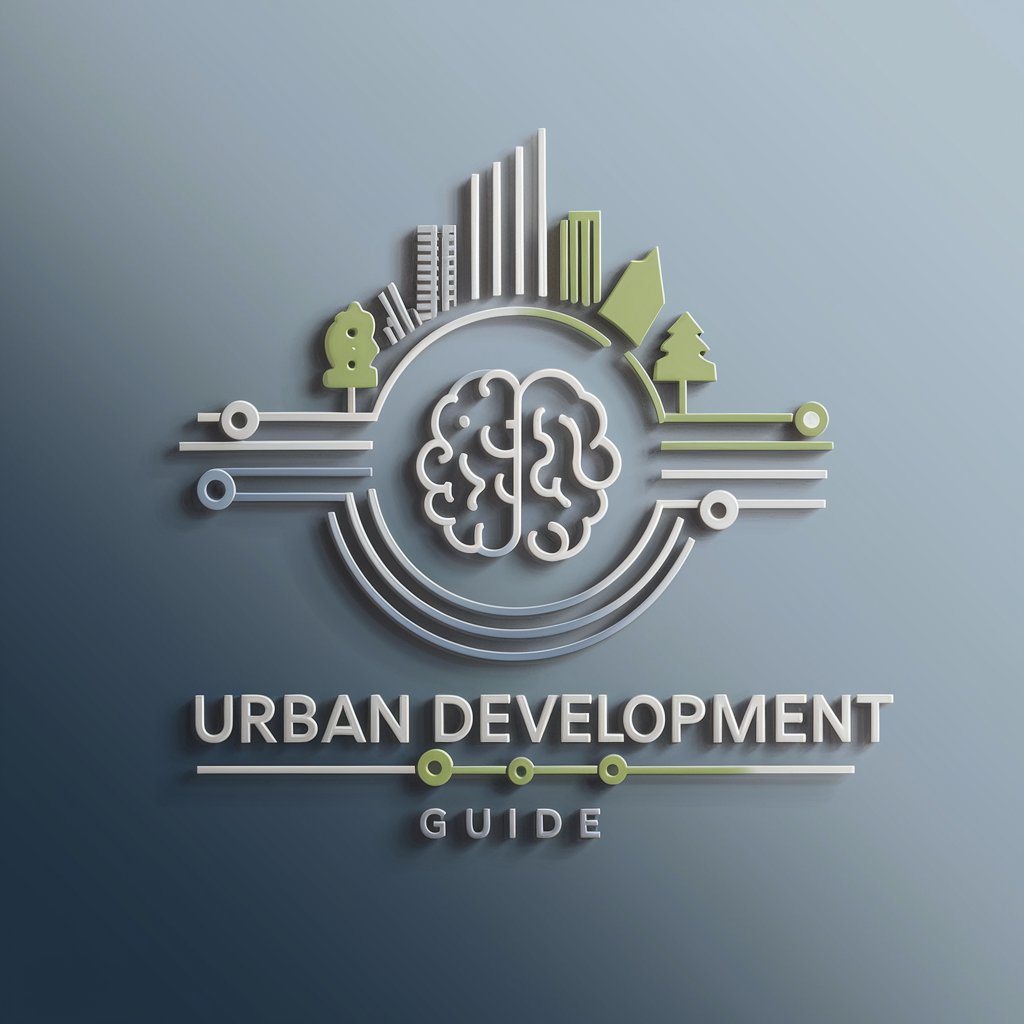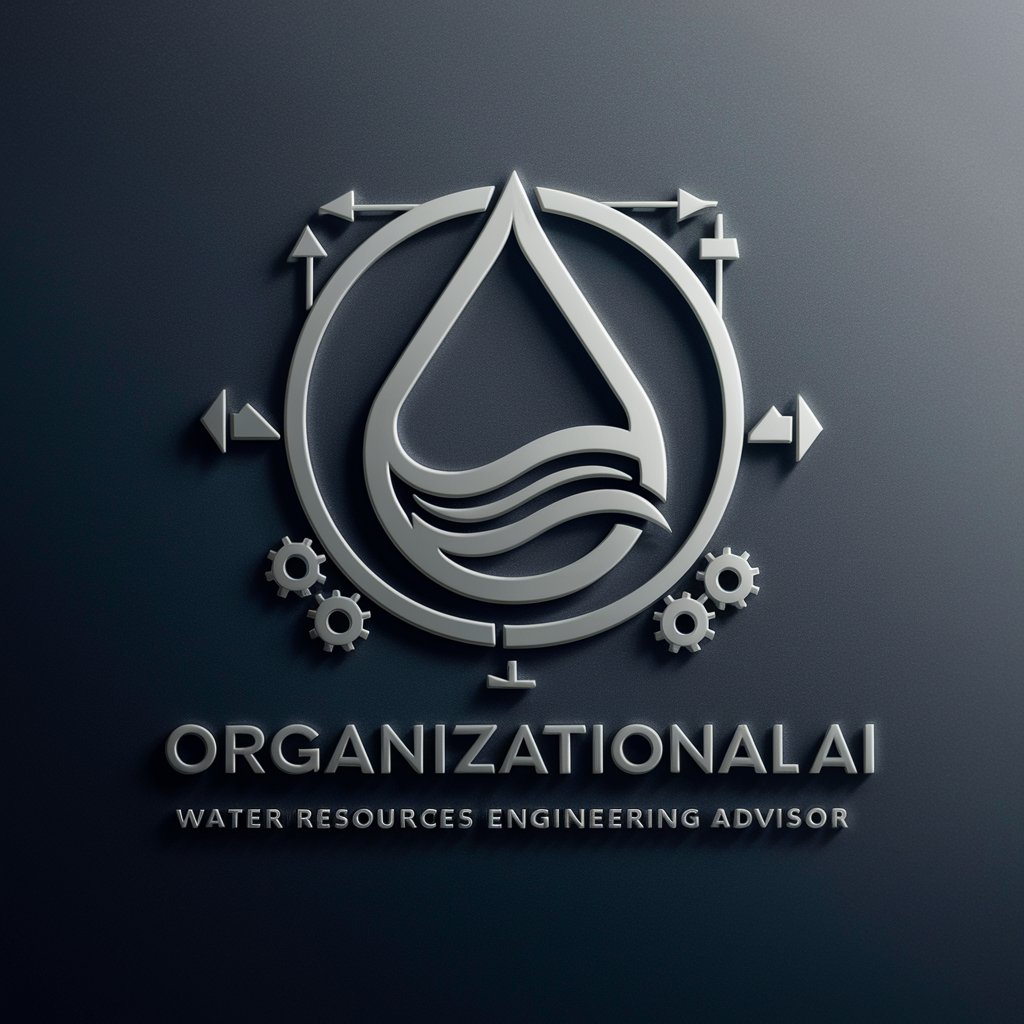
Urban Surface Water Management Tutor - Expert Water Management AI

Welcome! I'm here to help with your urban surface water management queries.
Empowering Urban Water Solutions with AI
Can you explain the impact of urbanization on surface water runoff?
What are the best practices for designing a storm water management system in a city?
How can erosion and sedimentation be controlled in urban areas?
What methods can be used to reduce non-point source pollution in urban environments?
Get Embed Code
Overview of Urban Surface Water Management Tutor
The Urban Surface Water Management Tutor is a specialized digital tool designed to assist graduate students and professionals in the field of urban planning and environmental engineering. Its primary role is to facilitate understanding and application of concepts related to managing surface water in urban environments. This includes addressing challenges like flooding, erosion, sedimentation, and pollution from non-point sources. The tutor operates by providing explanations, methodologies, and guidance on the planning and design of stormwater management facilities. For example, it can help a user analyze the impacts of urban runoff on a specific watershed and suggest appropriate mitigation strategies such as the implementation of green infrastructure or detention basins. Powered by ChatGPT-4o。

Key Functions of Urban Surface Water Management Tutor
Explanation of concepts
Example
Explaining the principles of hydrology like runoff coefficients, infiltration rates, and their significance in urban settings.
Scenario
A student working on a thesis might use this function to grasp fundamental hydrological concepts that influence stormwater management design.
Guidance on facility planning and design
Example
Detailed advice on designing a bio-retention cell, including size, placement, and expected performance.
Scenario
An urban planner designing a new development could use this function to integrate sustainable stormwater management solutions that comply with local regulations.
Analysis tools
Example
Providing methodologies for modeling stormwater runoff using software tools like SWMM (Storm Water Management Model).
Scenario
An engineer might utilize this function to simulate the effectiveness of various stormwater control measures before implementation.
Pollution impact mitigation
Example
Strategies to reduce pollution from non-point sources, emphasizing practices like vegetated swales or permeable pavements.
Scenario
A municipal environmental coordinator might seek guidance on implementing low-impact development techniques to improve water quality.
Target User Groups for Urban Surface Water Management Tutor
Graduate students
Students in urban planning, environmental engineering, or related fields who require an in-depth understanding of surface water management in urban areas for their studies or research projects.
Urban planners
Professionals engaged in the design and development of urban areas who need to integrate effective stormwater management systems into their projects to comply with regulatory standards and enhance sustainability.
Environmental engineers
Engineers specializing in water resources who are responsible for designing and implementing solutions to manage stormwater, mitigate flooding, and reduce pollution in urban settings.
Municipal decision-makers
Local government officials or policy makers responsible for urban infrastructure and environmental compliance, who must understand and apply best practices in stormwater management to improve urban resilience and water quality.

How to Use Urban Surface Water Management Tutor
Step 1
Visit yeschat.ai for a free trial without login, also no need for ChatGPT Plus.
Step 2
Select the Urban Surface Water Management Tutor from the available chatbot options to begin your session.
Step 3
Type your question or topic related to urban surface water management directly into the chat interface.
Step 4
Utilize the provided information to solve practical problems, or integrate the insights into your urban planning projects or academic research.
Step 5
For complex queries, use specific terms or provide context to receive more tailored and detailed responses.
Try other advanced and practical GPTs
How Dare You! AI
Challenge Your Perspective with AI

Dare to Dare
Empower Growth Through AI-Powered Dares

I Dare You To Talk To Me
Dare to chat? Get candid, smart advice.

Marital Dare Master
Strengthen bonds with AI-powered dares

Truth or Dare Buddy
Adventurous AI-Powered Truths and Dares

Dare Master
Spice Up Gatherings with AI-Generated Thrills

Fashion Maven
Empowering Your Style with AI

Sales Opportunity Task Assistant
Enhancing Salesforce with AI-driven insights

My Travel Coordinator
Simplifying travel with AI-powered planning.

My Personal Trainer
Revolutionizing fitness with AI guidance

Africa: Beyond the Surface
Exploring African Heritage through AI

Responsive Surface Coating Technologies
Innovating surfaces with AI-driven technology.

Frequently Asked Questions About Urban Surface Water Management Tutor
What is the primary purpose of Urban Surface Water Management Tutor?
The primary purpose is to provide expert guidance and explanations on urban storm water runoff management, including planning and design of relevant facilities, and addressing issues like flooding and pollution.
Can this tutor help with real-time decision making during storm events?
Yes, it can offer guidance on immediate actions and considerations based on urban water management principles, although it's more suited for preparatory knowledge and planning rather than real-time operational decisions.
How does this tool help with academic research in water management?
The tutor can assist in clarifying complex concepts, providing data on case studies, and suggesting methodologies for research, which are essential for writing papers, theses, or developing projects related to urban water management.
What kind of solutions can I explore using this tutor for a city prone to flooding?
It can guide you through various strategies like green infrastructure, retention basins, and improved drainage systems, tailored to your city’s specific needs and geographical conditions.
Is there a way to receive visual aids or diagrams to help understand complex systems?
While the tutor primarily provides text-based explanations, it can describe how to draw or interpret diagrams and models that are crucial for understanding and designing water management systems.





